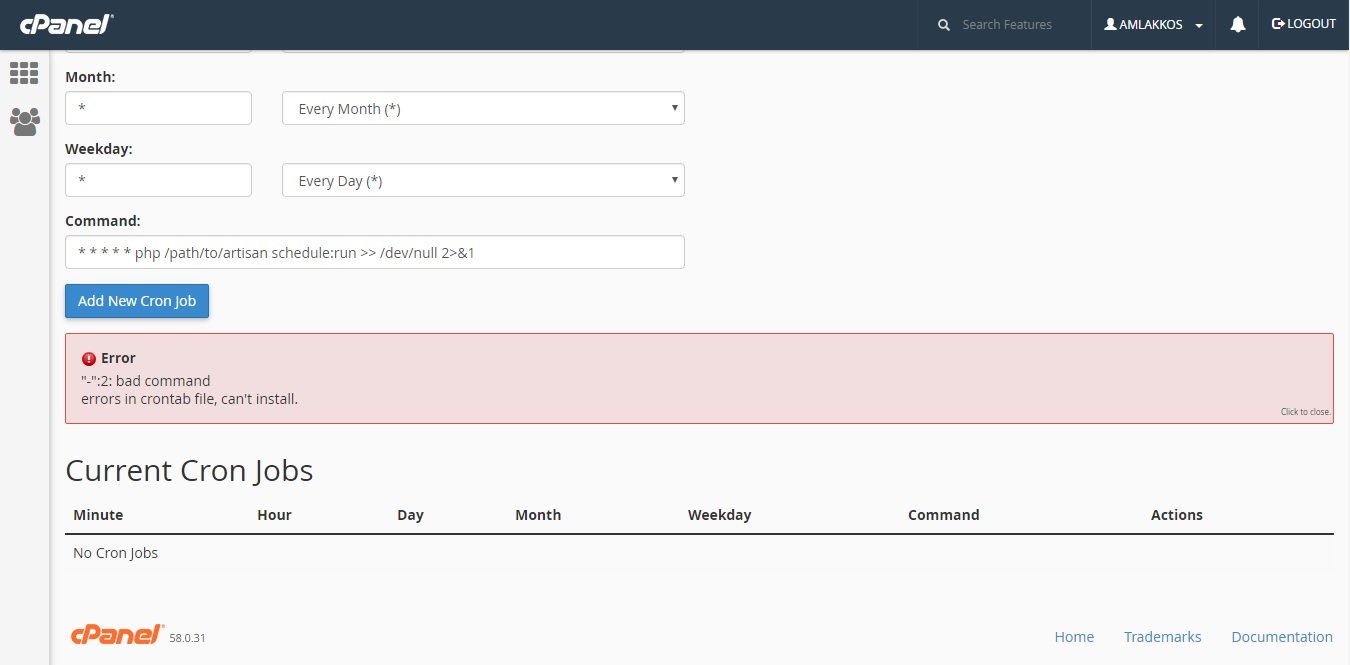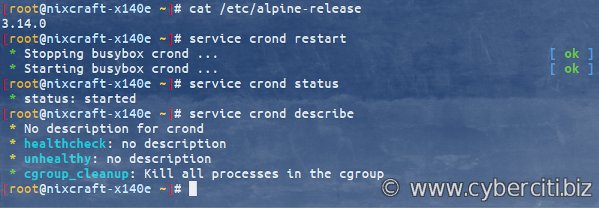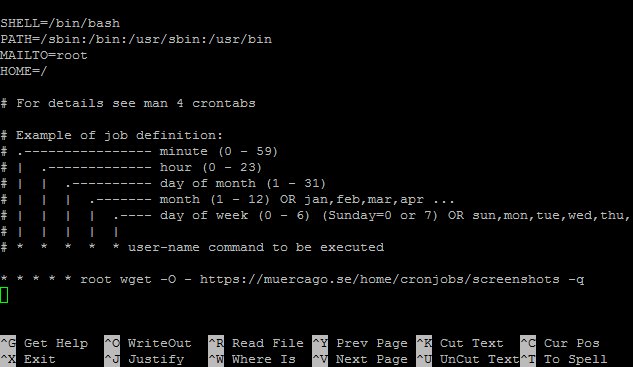Have you ever wondered how to schedule repetitive tasks on your computer without having to manually initiate them every time? Enter the cron service. This powerful tool allows you to automate various tasks, from running scripts and updating databases to sending emails and performing system maintenance. With cron service, you can easily set up a schedule for these tasks, saving you time and effort. In this article, we will explore the ins and outs of cron service, how to use it effectively, and how it can simplify your workflow. So, let’s dive right in!
The Power of Cron Service: Automating Tasks for Efficient Time Management
Introduction
In today’s fast-paced world, managing time effectively has become more crucial than ever. With numerous tasks to handle and deadlines to meet, finding ways to streamline and automate repetitive tasks is essential. This is where the cron service comes into play. Cron, short for “chronograph,” is a time-based job scheduler in Unix-like operating systems. It allows users to schedule and automate recurring tasks, freeing up valuable time and ensuring efficiency. In this article, we will delve deep into the world of cron service, exploring its features, benefits, and practical applications.
Understanding Cron Service
Cron service is a powerful tool that enables users to schedule and automate tasks at predetermined intervals. It operates through the use of a crontab file, which contains a list of commands to be executed. These commands can range from simple scripts to complex operations, catering to a wide range of user needs. The cron service runs in the background, constantly checking the system time and executing tasks as scheduled.
Features of Cron Service
Cron service offers several features that make it a valuable asset for efficient time management. Let’s explore some of its key features:
- Scheduling Flexibility: Cron service allows users to specify the exact timing of task execution, whether it’s daily, weekly, monthly, or even on specific days of the week.
- Multiple Task Execution: Users can schedule multiple tasks simultaneously, optimizing resource utilization and reducing the need for manual intervention.
- Error Management: Cron service provides options to manage errors effectively by sending notifications or logging error messages for troubleshooting.
- User-Based Configuration: Each user can have their own crontab file, providing personalization and the ability to automate individual workflows.
- System-Wide Control: System administrators can manage cron service globally, ensuring consistency and control across multiple users and tasks.
Benefits of Cron Service
The advantages of utilizing cron service extend beyond time-saving and automation. Let’s explore some of the key benefits:
- Productivity Boost: By automating repetitive tasks, cron service frees up valuable time that can be allocated to more important and meaningful activities.
- Accuracy and Reliability: Cron service guarantees the execution of tasks at precisely defined intervals, ensuring accuracy and reliability in job scheduling.
- Consistency: With cron service, tasks are executed consistently, eliminating the risk of overlooking or forgetting important recurring actions.
- Resource Optimization: Cron service allows for efficient resource allocation by scheduling tasks during off-peak hours, maximizing system performance.
- Increased Efficiency: By automating tasks, cron service reduces the need for manual intervention, minimizing human error and improving overall efficiency.
Practical Applications of Cron Service
Cron service finds applications in various domains, enhancing productivity and simplifying workflows. Let’s take a closer look at some practical use cases:
1. Automated Data Backup
Regular data backups are crucial to protect against data loss. With cron service, users can automate the process by scheduling backups at desired intervals. Whether it’s a local server or a remote machine, cron service ensures that backups are performed consistently and reliably.
2. System Maintenance and Updates
Cron service enables system administrators to automate routine maintenance tasks, such as cleaning temporary files, updating software packages, or monitoring system health. By scheduling these tasks, system administrators can ensure that critical maintenance operations are performed regularly without manual intervention.
3. Website Monitoring
For website owners, it’s vital to monitor website availability and performance. Cron service can be utilized to schedule periodic checks, ensuring that websites are up and running smoothly. In case of any downtime or anomalies, cron service can trigger notifications, allowing for timely intervention.
4. Report Generation
Automated report generation is a common requirement in many industries. Cron service can be utilized to schedule tasks that generate reports from databases, log files, or other data sources. By automating this process, businesses can receive up-to-date reports without the need for manual intervention.
5. Social Media Posting
Managing social media presence often involves regular posting and engagement. Cron service can be used to schedule posts on various social media platforms, ensuring consistency and freeing up time for other marketing efforts. It allows businesses to maintain an active online presence effortlessly.
In conclusion, the cron service is a powerful tool for automating tasks and managing time effectively. With its flexible scheduling options, error management, and resource optimization features, cron service streamlines workflows and enhances productivity. By exploring various practical applications, we have witnessed the versatility of cron service in different domains. Whether it’s automating data backups, maintaining systems, monitoring websites, generating reports, or managing social media, cron service proves to be an invaluable asset. Embracing the power of cron service can transform the way we handle repetitive tasks, unlocking more time for meaningful activities and elevating overall efficiency.
Linux Crash Course – Scheduling Tasks with Cron
Frequently Asked Questions
What is a cron service?
A cron service is a utility program found in Unix-like operating systems that enables users to schedule and automate recurring tasks or jobs. It allows you to specify the desired time and frequency for a task to be executed, without requiring manual intervention.
How does a cron service work?
A cron service runs in the background and constantly checks a table known as the “crontab” for scheduled tasks. This table contains entries that specify the command to be executed and the time or frequency at which it should run. When the specified time matches the current system time, the cron service initiates the associated task.
Can I use a cron service on Windows?
Cron is primarily used on Unix-like systems. However, there are alternative solutions available for Windows, such as the Task Scheduler. The Task Scheduler provides similar functionality, allowing you to schedule and automate tasks in a Windows environment.
What kind of tasks can be automated using a cron service?
A cron service can automate a wide range of tasks, including backups, system maintenance, log rotation, data synchronization, email notifications, and much more. It allows you to automate repetitive tasks, freeing up your time and ensuring that important processes are executed consistently.
How do I create and manage cron jobs?
To create and manage cron jobs, you need to access the crontab file. The crontab file contains entries for each scheduled task. By editing this file, you can specify the command, scheduling details, and other parameters for your cron jobs. Most Unix-like systems provide utilities like “crontab -e” to easily edit the crontab file.
Can I run cron jobs with different user privileges?
Yes, you can run cron jobs with different user privileges. The crontab file is associated with a specific user, and each user can have their own crontab. Therefore, you can create and manage cron jobs that run with the privileges of the respective user, providing flexibility and security in task execution.
Final Thoughts
The cron service is a vital tool for automating tasks on a system. With its ability to schedule and run scripts at specified times, it helps streamline repetitive processes and improve overall efficiency. By configuring cron jobs, users can easily set up recurring tasks, such as backups, system updates, and data synchronization. This service simplifies the management of routine operations, allowing users to focus on more important tasks. The cron service ensures that essential functions are performed reliably and on time, making it an indispensable tool for system administrators and developers alike.




